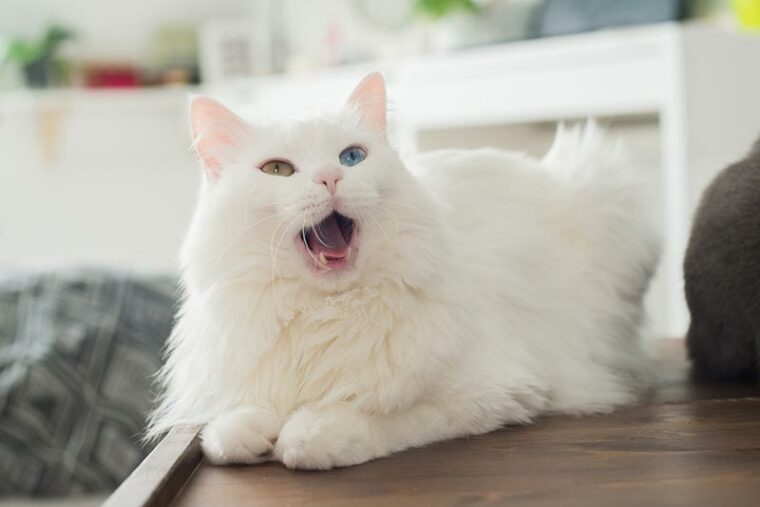
Some cats are naturally vocal, while others rarely make noise. Cats meow for a variety of reasons, from letting you know that it’s mealtime to greeting you when you come home. Most of the time, it’s nothing to worry about, but if your usually quiet kitty suddenly becomes very vocal, it’s time to pay attention. They may be trying to tell you something.

The 11 Reasons Why Your Cat is Suddenly Meowing a Lot
1. Boredom
Cats that are bored may tend to meow frequently. You can alleviate their boredom by rotating different toys and spending dedicated time playing with your cat each day. Cats that don’t get enough daily exercise can have built-up energy that leads to meowing. Make sure your cat is exercising enough by giving them climbing and hiding spaces, like cat trees or window perches.

2. Heat
If your cat isn’t spayed or neutered1, this may be the cause of their increased vocalization. Female cats in heat meow frequently. Male cats that aren’t neutered vocalize in an effort to be “let out” to find a mate or because they smell a female in heat nearby. The cries of cats seeking a mate often sound more like howls than meows.
If you have no intention of breeding your cat, the best solution to these meows is to spay or neuter your cat.
3. Pain
Meowing is your cat’s attempt to communicate with you. Pain is another reason that they may suddenly increase vocalization. Your cat can’t tell you where it hurts, so you’ll have to look for clues. Scratches, cuts, or abnormal movement patterns are a good place to start.
Urinary tract infections2, abdominal pain, or constipation can be other sources of meowing that don’t have obvious external signs. If you notice that your cat is using the litter box more frequently or meowing while going to the bathroom, consider that this could be the problem.
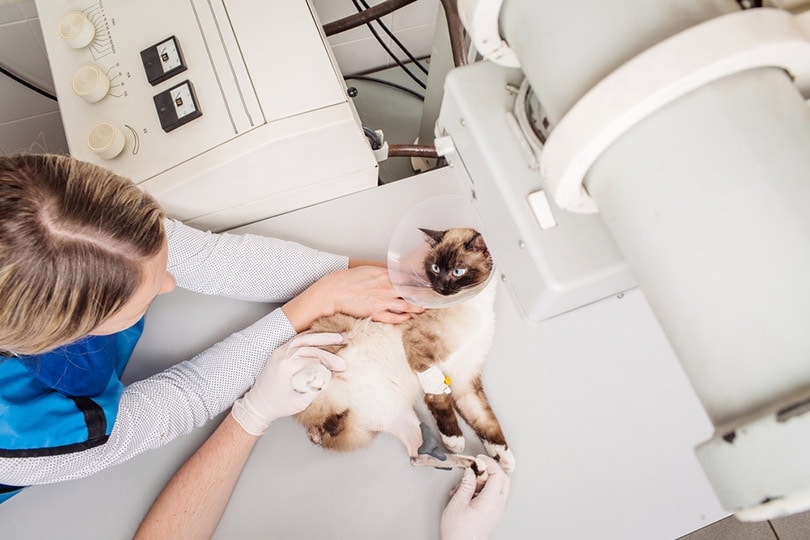
4. Aging
As cats age, they undergo several physical and cognitive changes that can lead to excessive vocalization. This is common with cognitive dysfunction3, which usually affects cats over the age of 10 years.
If you have a senior cat that exhibits these symptoms, talk to your vet about how you can help them.
5. Illness
Many illnesses can cause an increase in meowing. Hyperthyroidism is commonly associated with excessive vocalization. Any change in your cat’s behavior should be a warning sign that something is wrong. Since cats are often good at hiding physical symptoms, a sudden increase in meowing may be your only indication that something’s wrong.
Catching any illness early is always best. If you can’t figure out an obvious cause of your cat’s noisiness, consider a vet checkup to rule out physical illness.
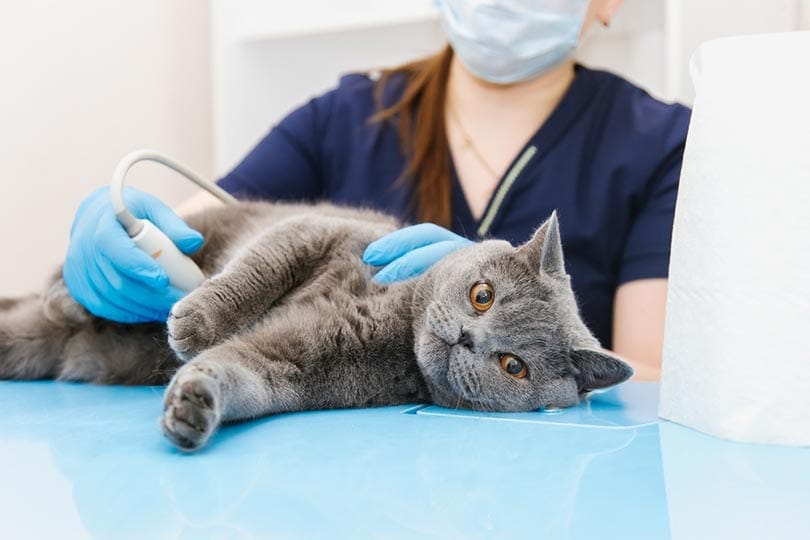
6. Attention Seeking
If your cat is looking for attention or affection, they may meow frequently. It may just be your kitty’s effort to get your attention. If it is excessive, make sure not to respond to attention-seeking meows, as this reinforces the meowing.
Make sure to spend time with your cat every day, and ensure that they are getting plenty of exercise and mental stimulation. Tired pets are usually quiet pets, so it may be that your cat has pent-up energy that needs to be used up.
7. Hunger
Cats that meow every time someone is near their food bowl may be requesting food. If this is the case, feeding your cat when they meow will only encourage the behavior. Wait until they are quiet to fill their bowl, and avoid giving treats to a meowing cat.

8. Loneliness
Contrary to popular belief, not all cats like to be alone. If your cat spends long hours by themselves daily, they may meow because they’re lonely. Sometimes this can be alleviated by giving your cat a window perch where they can see a bird feeder outside.
Other times, cats simply need company. If you work long hours away from home, consider hiring a pet sitter to check in and play with them midday to break up their alone time. Or consider getting another cat.
9. Stress
Stress can cause cats to meow excessively. Animals are sensitive to changes in routine. New pets or family members, moving, or the loss of a loved one can make a quiet cat suddenly vocal.
While you can’t always control the cause of the stress, try to keep your cat’s routine as consistent as possible. If necessary, give them extra attention to let them know that you love them and that they are still important to you.
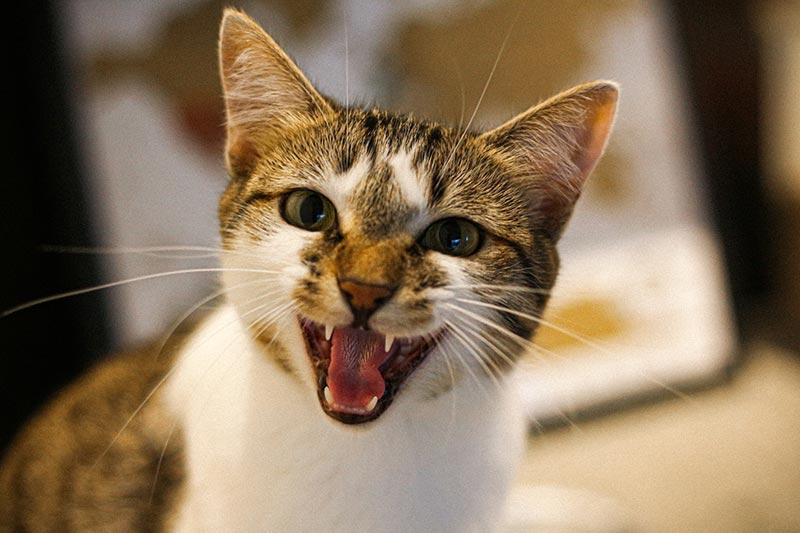
10. Greeting
Some cats meow to say, “hello.” If they are vocal when you come home after being away or when you get up in the morning, it may just be a form of greeting.
11. Loss of hearing or eyesight
Occasionally, cats will increase their vocalization when they are struggling with one of their other senses. If your cat’s meowing is accompanied by them tripping over things or hesitation to jump, it may be time to take them to the vet.
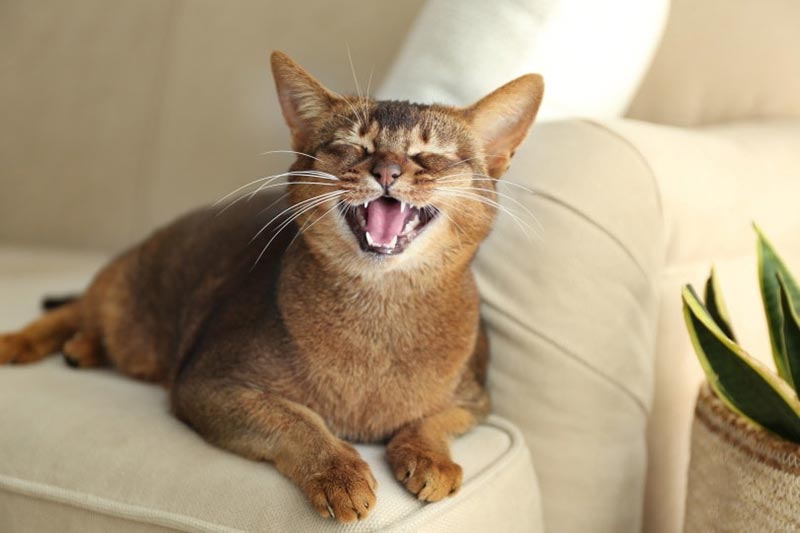

What Not to Do When Your Cat Is Meowing Excessively
While there are many different reasons that your cat may be meowing, there are a few things that you shouldn’t do.

Conclusion
It can be disconcerting when your cat has a sudden change in behavior. There are both health reasons and behavioral reasons why cats may start meowing frequently. If you are concerned about it, the first step is to have your cat checked by a vet to solve any physical issues. Behavioral meowing can be fixed with patience and persistence, along with ensuring that your cat is getting daily play sessions and exercise.
See Also:
- 17 Signs That Your Cat May Be Sick (Vet Answer)
- Do Tortoiseshell Cats Meow More Than Others? (Science & FAQs)
Featured Image Credit: Helen Bloom, Shutterstock






